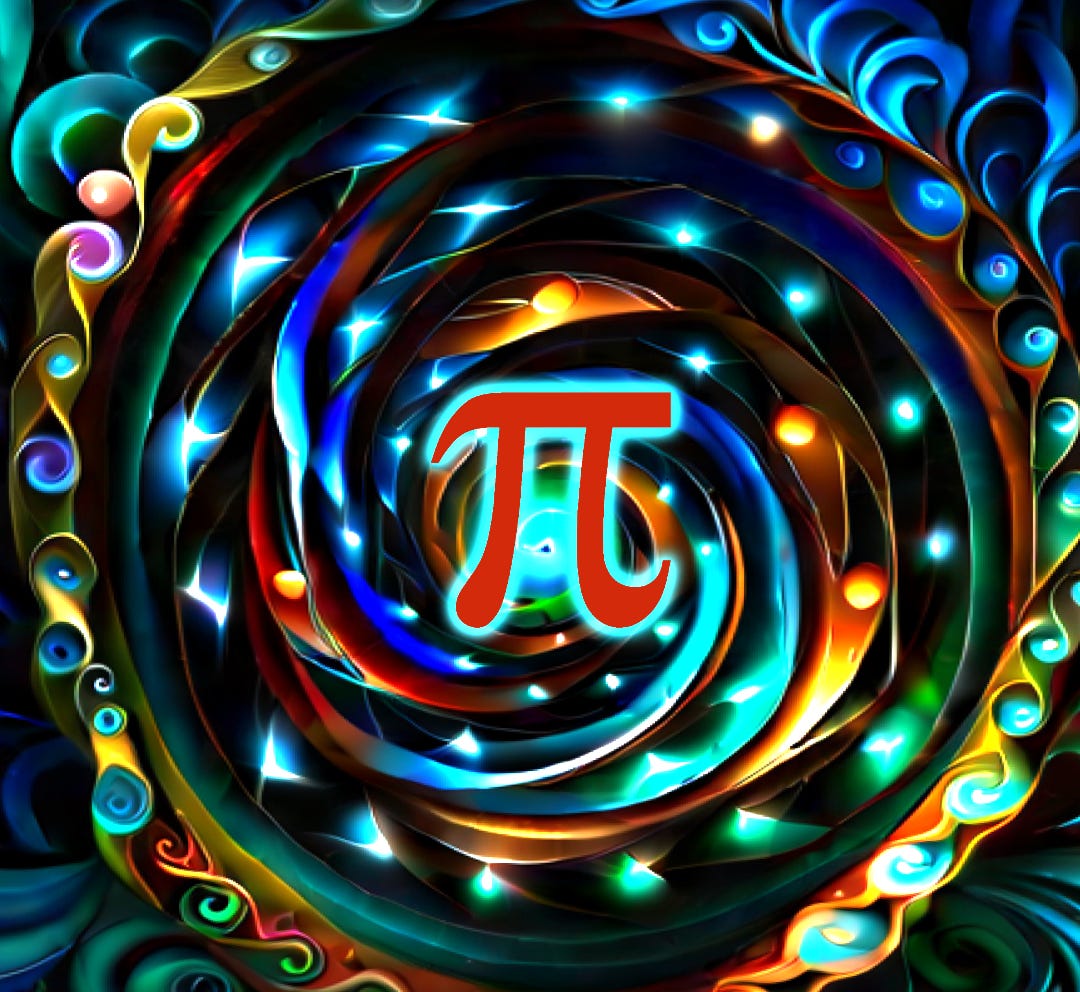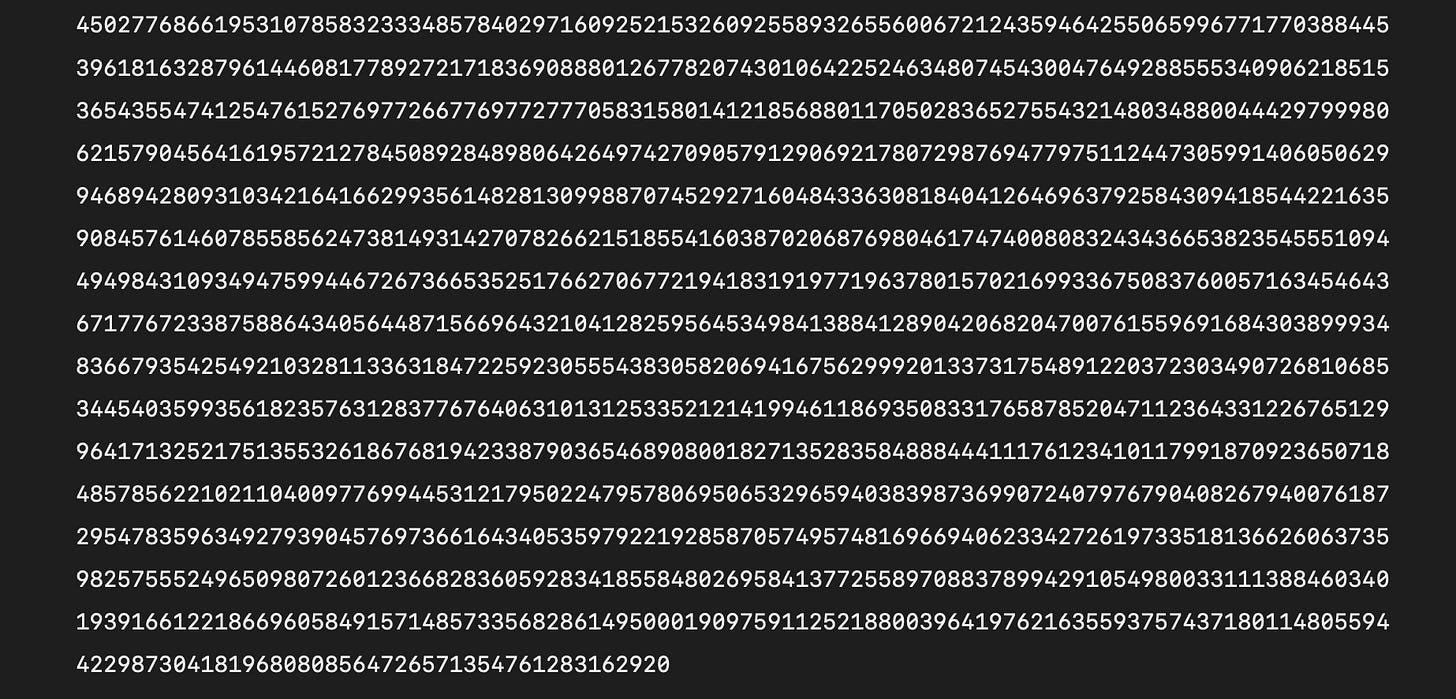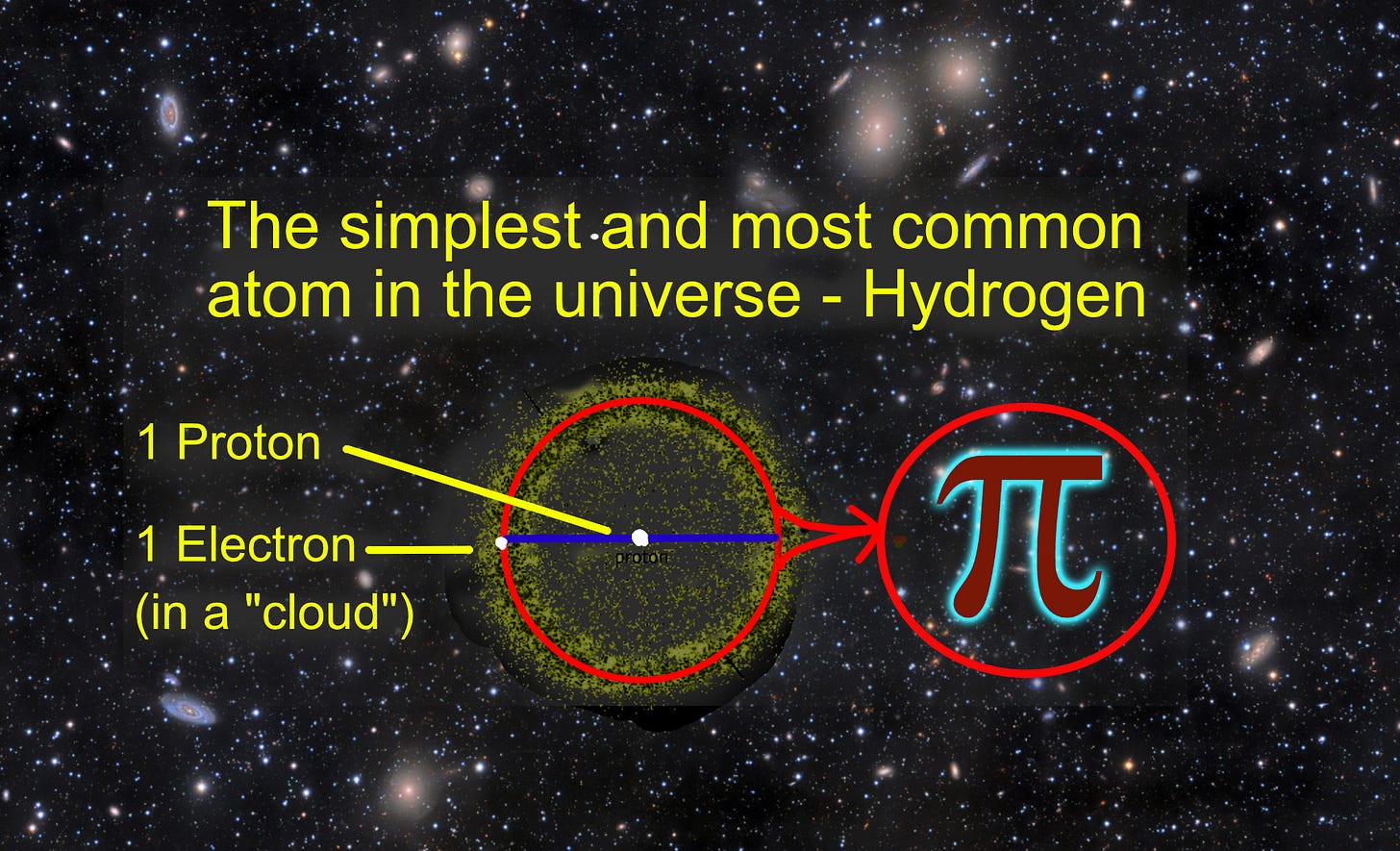Pi at the Center of the Universe
Was life baked into the universe from day one?
Why is it so hard to figure out where life came from?
There’s lots of life around to study. We have the smartest scientists and the biggest computers. Why is it so hard to figure out?
This article is the first in a series exploring this subject and proposing some answers. Next, see The Secret Life of Algorithms for a quick refresher before the main course.
The answer is that the secret to making life was built into the universe from the beginning. And it’s waiting for us to discover it. How can that be?
The journey takes us to the beginning of the universe, but as my mother always told me,
“Life is uncertain, eat dessert first.”
So let’s begin with pie and see why understanding Pi is essential for finding the origin of life.
Pi is nothing more complicated than the ratio of the diameter of a circle to its circumference. It’s very basic and easy to calculate. It’s always the same, for any circle, anywhere in the universe.
So what is the value of Pi? The answer is no one knows, exactly. Schoolchildren are taught that it’s 3.14 - shut up, sit down, and don’t ask about the rest.
Computers have calculated Pi to over 20 trillion digits. It is always the same sequence of numbers. Around 700,000 digits out, Pi looks like this:
The amazing thing about simple little Pi is that the number never ends and never repeats. If we start calculating from the beginning, it is not at all random. We can calculate the exact value of any digit, even 10 trillion from the beginning.
However, the numbers appear completely random for any chunk of Pi, like the sequence above. No computer can figure out for sure even the next single digit that comes before or after. And the computer certainly can’t figure out that the numbers were created by the circumference of a pie divided by its diameter. It’s impossible - for any computer - ever.
The mathematician Stephen Wolfram calls it “irreducible computation” - you can only find the values by starting from the beginning. There are no shortcuts for jumping ahead and finding the value of, for example, the one-millionth number.
Now think about the universe
We and the universe are the product of billions of years of Pi-like complex computations of who knows how many kinds. They appear to us as streams of swirling, flowing, matter and energy, intersecting, combining, and creating the magnificent complexity of the universe and life on Earth.
Just like Pi, we can’t simply look at all the wonderful, complex life flowing by today and figure out how it all started back there at the headwaters of creation.
However, we do know that those universal relationships and their algorithms must exist - because the end result of their computations did indeed create life on Earth - and pie.
And these universal algorithms must have existed from the first moments of the “big bang” when the laws of physics for our universe were created. Or so we think.
Were we baked into the universe from day one?
So I am saying that the algorithms for the creation of life were built into our universe from its very beginning. Given the right circumstances, like the formation of planet Earth, the algorithms fall into alignment, and bingo! Life happens.
We humans are nothing if not curious. We can think, imagine, connect, and propose the original base algorithms of life. They might be hiding in plain sight. With a little imagination, we just might discover how life evolved from “inanimate” matter and energy.
And since the algorithms are universal, we may find that life evolved not only here on Earth but everywhere in the universe.







Love this, Mark! Very thought-provoking. I'm curious what the implications are for free will. Does this imply that "we", literally meaning you and me, were baked into the universe from day one? Or just that "we", meaning some broad type of sentient life, were always baked into it? If the former, then that doesn't bode well for free will. If the latter, then free will is redeemable!
It's a completely different concept, but the idea that what appears random is actually there for a reason reminds me a bit of Chesterton's Fence...
I grok this model Mark, very cool insight. There are simple, massively important things hiding in plain sight.
A different slant and not sure how it attaches to this concept but maybe on the same theme of hiding in plain sight, I just heard that Brian Greene is thinking that the fabric of the universe is wormholes and that is what is behind the quantum theory of entanglement. The entangled particles are communicating through wormholes which is why the are simultaneously opposite at great distance. Someone or something will figure this out, maybe not in our lifetimes (but maybe with AI) but there's a lot to wrap your mind around.